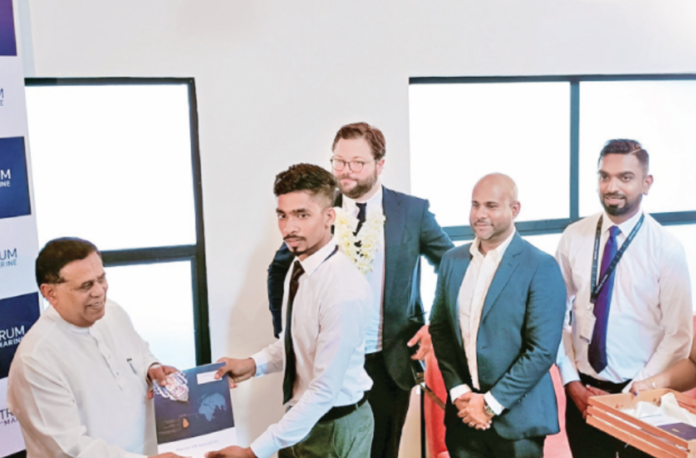Kalinga De Silva, the Founder and Managing Director of Centrum Marine Consultancy, revealed ambitious projections for Sri Lanka’s seafarers’ remittances, stating that the current USD 400 million generated annually could triple by 2026 with more opportunities in the maritime sector. Speaking at the inauguration of the company’s new headquarters, “Centrum Haus” in Colombo 03, De Silva emphasized the need to capitalize on the global demand for seafarers.
Despite a worldwide shortage of approximately 147,000 seafarers over the next two years, Sri Lanka only has around 16,000 professionals in the field. De Silva urged the country to take immediate steps to increase this number and tap into the burgeoning demand. By fulfilling a share percentage of the global demand, Sri Lanka could attract remittances worth USD 1.5 billion to two billion in the next three years.
However, De Silva acknowledged several challenges hindering the growth of the profession in Sri Lanka. Issues include logistical constraints, a lack of awareness among the youth about maritime careers, and cultural biases that undervalue the role of seafarers. Despite these hurdles, Sri Lanka has earned a reputation as a reliable source of skilled seafarers, thanks to its robust infrastructure in maritime education and training.
De Silva highlighted the significant advantage of a seafaring career, noting that individuals can start earning around USD 500 in just one year after completing an 8-month training course and a 4-month waiting period. Comparatively, other professions like medicine require much more time and investment to reach similar earning levels.
Minister of Shipping and Aviation, Nimal Siripala de Silva, who graced the event as the chief guest, acknowledged the potential of grooming seafarers but pointed out logistical challenges. He mentioned that while government institutions like Mahapola have produced around 500 trained seafarers, they face hurdles in providing practical onboard training due to the lack of ships in Sri Lanka. To address this, the government is actively seeking partnerships and investments to advance the local shipping industry and cater to modern ship demands, including alternative fuels and other services.
